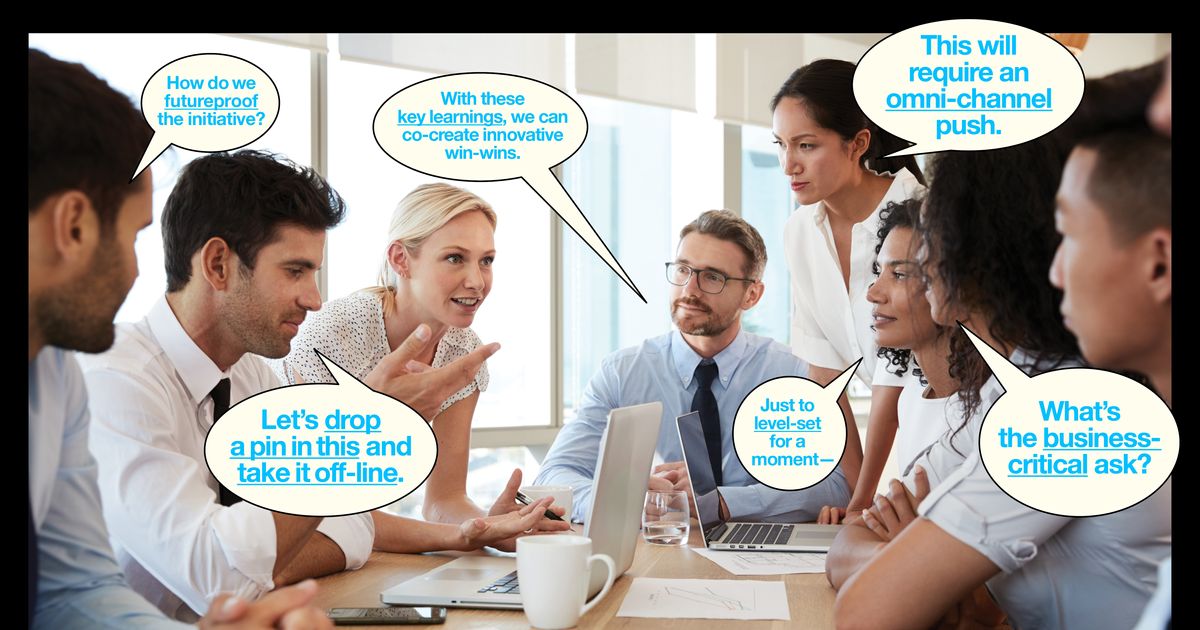The Language of Corporations Unveiled
แนวคิดหลัก
The author delves into the deceptive nature of corporate language, highlighting how it serves to conceal rather than communicate effectively in the workplace.
บทคัดย่อ
The article explores the evolution and impact of corporate jargon on communication within organizations. It sheds light on how meaningless terms like "parallel path" and "garbage language" are used to fill space and create a facade of productivity. The narrative follows personal experiences and observations, emphasizing the disconnect between language usage and genuine communication. Through anecdotes from various workplaces, the author critiques the prevalence of buzzwords, metaphors, and acronyms that hinder clarity and authenticity in interactions. The discussion extends to encompass broader societal implications, linking garbage language to deeper anxieties about work identity and self-marketing strategies. By dissecting examples from start-ups like WeWork and Away, the article exposes how manipulative language can perpetuate toxic work environments and mask exploitation under the guise of empowerment. Ultimately, it challenges readers to reflect on the insidious influence of corporate jargon on individual perceptions and organizational dynamics.
แปลแหล่งที่มา
เป็นภาษาอื่น
สร้าง MindMap
จากเนื้อหาต้นฉบับ
ไปยังแหล่งที่มา
www.vulture.com
Why Do Corporations Speak the Way They Do?
สถิติ
In January, a memoir called Uncanny Valley was published.
WeWork's prospectus is nearly 200,000 words long.
Away faced backlash for its management practices.
คำพูด
"People used a sort of nonlanguage... inflated with self-importance."
"It was garbage language... but customers loved him."
"The hideous nature of these words — their facility to warp and impede communication — is also their purpose."
สอบถามเพิ่มเติม
What role does corporate language play in shaping workplace culture beyond mere communication?
Corporate language serves as a tool for not only communicating tasks and information but also for shaping the overall workplace culture. The use of specific terms and phrases can create a sense of belonging, establish hierarchies, and reinforce company values. For example, words like "empowerment" or "innovation" can convey a sense of inclusivity and forward-thinking within an organization. Additionally, corporate jargon can act as a form of social currency, where employees who are fluent in this language may be perceived as more knowledgeable or integrated into the company culture. Overall, corporate language influences how individuals perceive their roles within the organization and contributes to the creation of a shared identity among employees.
How can employees navigate through garbage language to maintain authentic interactions at work?
Navigating through garbage language in the workplace requires a combination of awareness, adaptability, and assertiveness. One approach is to actively listen to colleagues using such language while also seeking clarification when needed. By asking questions or requesting plain explanations, employees can encourage clearer communication without dismissing or alienating others. It's essential to balance understanding industry-specific terminology with maintaining authenticity in interactions by expressing thoughts and ideas clearly and genuinely. Developing strong interpersonal skills that focus on active listening, empathy, and effective communication will help employees cut through the clutter of garbage language while fostering genuine connections with coworkers.
In what ways does the prevalence of buzzwords reflect broader societal trends in professional environments?
The prevalence of buzzwords in professional environments reflects broader societal trends related to technology advancements, globalization, and shifting cultural norms. As industries evolve rapidly due to technological innovations like AI or blockchain technology, new terminologies emerge to describe these changes accurately. Globalization has led companies to adopt universal business languages that transcend borders but may sometimes lack depth or authenticity due to overuse or misinterpretation.
Moreover,
the rise of individualism has fueled an emphasis on personal growth
and empowerment,
resulting in self-marketing strategies embedded within organizational cultures.
These trends contribute
to an environment where buzzwords serve as shorthand for complex concepts,
allowing professionals
to signal their alignment with current ideologies
or market trends quickly.
Overall,
the prevalence
of buzzwords mirrors society's constant evolution towards efficiency,
individuality,
and interconnectedness across various industries.

